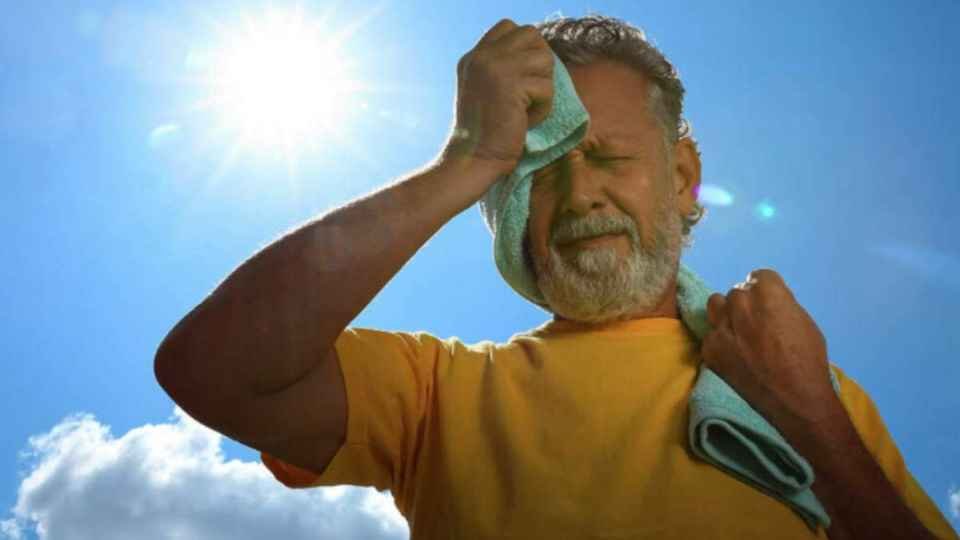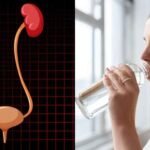What is the Connection Between Summer and Stroke? Know Preventive Measures

Understanding the Connection Between Summer and Stroke
During the summer months, there is a notable increase in the incidence of strokes, which can be attributed to various factors associated with warmer weather. Understanding the connection between summer and stroke is crucial for taking appropriate preventive measures to mitigate the risk.
Factors Contributing to Increased Stroke Risk in Summer:
- Dehydration: Higher temperatures often lead to increased perspiration and fluid loss, which can result in dehydration. Dehydration thickens the blood, making it more prone to clotting, which is a significant risk factor for stroke.
- Increased Physical Activity: Summer encourages outdoor activities such as sports, gardening, and exercise. While physical activity is generally beneficial for health, sudden intense exertion, especially in hot weather, can trigger a stroke, particularly in individuals with pre-existing cardiovascular conditions.
- Heat Stress: Prolonged exposure to high temperatures can cause heat stress, leading to elevated blood pressure and strain on the cardiovascular system. This can increase the risk of a stroke, particularly in vulnerable populations such as the elderly and individuals with chronic health conditions.
- Alcohol Consumption: Summer festivities often involve alcohol consumption, which can contribute to dehydration and raise blood pressure, both of which are risk factors for stroke. Excessive alcohol intake can also impair judgment and increase the likelihood of engaging in risky behaviors that may predispose individuals to stroke.
Preventive Measures to Reduce Stroke Risk in Summer:
- Stay Hydrated: Drink plenty of water throughout the day, especially when engaging in outdoor activities or spending time in the sun. Avoid excessive consumption of caffeinated or alcoholic beverages, as they can contribute to dehydration.
- Avoid Overexertion: Pace yourself during physical activities in hot weather, and take frequent breaks to rest and cool down. Listen to your body and avoid pushing yourself beyond your limits, particularly if you have underlying health conditions.
- Stay Cool: Seek shade or air-conditioned environments during the hottest parts of the day. Wear lightweight, breathable clothing and use fans or air conditioning to stay cool indoors.
- Monitor Blood Pressure: Individuals with hypertension or other cardiovascular risk factors should monitor their blood pressure regularly, especially during the summer months. Follow your healthcare provider’s recommendations for managing hypertension and other underlying health conditions.
- Limit Alcohol Intake: If you choose to consume alcohol, do so in moderation and alternate alcoholic beverages with water to stay hydrated. Avoid excessive drinking, particularly in hot weather, to reduce the risk of dehydration and high blood pressure.
- Know the Signs of Stroke: Familiarize yourself with the signs and symptoms of stroke, such as sudden weakness or numbness, difficulty speaking or understanding speech, severe headache, and dizziness. Seek immediate medical attention if you or someone else experiences these symptoms.
The Link Between Summer and Stroke
Several factors contribute to the higher incidence of strokes during the summer months:
Dehydration
Warmer temperatures can lead to increased sweating and fluid loss, which, if not adequately replenished, can result in dehydration. Dehydration thickens the blood and makes it more prone to clotting, raising the risk of stroke.
High Blood Pressure
Heat and humidity can cause blood vessels to dilate, leading to a drop in blood pressure. In response, the body may increase heart rate and constrict blood vessels to maintain blood pressure. These changes can strain the cardiovascular system, particularly in individuals with high blood pressure, increasing the risk of stroke.
Increased Physical Activity
Many people engage in outdoor activities such as sports, gardening, or hiking during the summer months. While exercise is beneficial for overall health, sudden intense physical exertion, especially in hot weather, can trigger a stroke, particularly in individuals with underlying cardiovascular conditions.
Dietary Habits
Summer often brings changes in dietary habits, including consumption of more salty foods, sugary drinks, and alcohol. These dietary choices can contribute to high blood pressure, obesity, and other risk factors for stroke.
Preventive Measures
Understanding the link between summer and stroke can help individuals take preventive measures to reduce their risk:
- Stay Hydrated: Drink plenty of water throughout the day, especially when spending time outdoors in the heat. Avoid excessive consumption of caffeinated or alcoholic beverages, as they can contribute to dehydration.
- Monitor Blood Pressure: Individuals with high blood pressure should monitor their blood pressure regularly, especially during the summer months. Follow healthcare provider recommendations for managing hypertension and other cardiovascular risk factors.
- Moderate Physical Activity: Pace yourself during outdoor activities and take breaks to rest and cool down. Avoid sudden intense physical exertion, particularly in hot weather.
- Healthy Eating: Maintain a balanced diet rich in fruits, vegetables, whole grains, and lean proteins. Limit consumption of salty foods, sugary drinks, and alcohol, which can contribute to high blood pressure and other risk factors for stroke.
Preventive Measures for Reducing Summer Stroke Risk
To safeguard against the heightened risk of stroke during the summer months, consider implementing the following preventive measures:
- Stay Hydrated: Ensure adequate hydration by drinking plenty of water throughout the day, especially when engaging in outdoor activities or spending prolonged periods in the sun. Limit consumption of caffeinated or alcoholic beverages, as they can exacerbate dehydration.
- Protect Against Heat: Prevent overheating and heat-related illnesses by seeking shade, wearing loose-fitting, breathable clothing, and using fans or air conditioning to stay cool indoors. Pay attention to heat advisories and take appropriate precautions to avoid excessive heat exposure.
- Maintain a Healthy Diet: Opt for a balanced diet rich in fruits, vegetables, whole grains, and lean proteins to support overall health and reduce the risk of stroke. Minimize intake of high-sodium and processed foods, sugary snacks, and alcoholic beverages, which can contribute to hypertension and other stroke risk factors.
- Exercise Safely: Gradually acclimate to outdoor physical activities in the summer heat by starting slowly and increasing intensity and duration over time. Take regular breaks, stay hydrated, and listen to your body’s signals. Consult with a healthcare professional before beginning a new exercise regimen, especially if you have underlying health concerns.
- Monitor Blood Pressure: Keep track of your blood pressure regularly, particularly during the warmer months, and adhere to any prescribed medications or treatment plans recommended by your healthcare provider. Be vigilant for any fluctuations or concerning trends and seek medical attention as needed.
- Seek Immediate Medical Attention: Familiarize yourself with the signs and symptoms of stroke, including sudden weakness or numbness in the face, arm, or leg, difficulty speaking or understanding speech, severe headache, dizziness, or loss of coordination. If you or someone else experiences these symptoms, seek emergency medical assistance promptly.
By understanding the connection between summer and stroke and implementing these preventive measures, you can enjoy a safe and healthy summer season while minimizing the risk of stroke. Prioritize your health and well-being, stay informed, and take proactive steps to protect yourself and your loved ones.
Top 20 FAQs about Unraveling the Connection Between Summer and Stroke: Essential Preventive Measures
- **What is the connection between summer and stroke?
- Warmer temperatures during summer can lead to dehydration, high blood pressure, increased physical activity, and changes in dietary habits, all of which contribute to a higher risk of stroke.
- **How does dehydration increase the risk of stroke during summer?
- Dehydration thickens the blood, making it more prone to clotting, which increases the risk of stroke.
- **Can high blood pressure be exacerbated by summer heat?
- Yes, heat and humidity can cause blood vessels to dilate, leading to a drop in blood pressure. The body may respond by increasing heart rate and constricting blood vessels, which can strain the cardiovascular system and increase stroke risk.
- **Does increased physical activity in summer contribute to stroke risk?
- Intense physical exertion, especially in hot weather, can trigger a stroke, particularly in individuals with underlying cardiovascular conditions.
- **How do dietary habits in summer affect stroke risk?
- Consuming salty foods, sugary drinks, and alcohol can contribute to high blood pressure and other risk factors for stroke.
- **How can I stay hydrated during summer to prevent stroke?
- Drink plenty of water throughout the day and avoid excessive consumption of caffeinated or alcoholic beverages.
- **What are essential tips for protecting against heat-related stroke risk?
- Stay cool by seeking shade, wearing lightweight clothing, and using fans or air conditioning. Be mindful of heat advisories and take necessary precautions.
- **How can I maintain a healthy diet to prevent stroke during summer?
- Choose nutritious, low-sodium foods rich in fruits, vegetables, whole grains, and lean proteins. Limit intake of processed foods, sugary snacks, and alcoholic beverages.
- **What safety precautions should I take when exercising outdoors in summer?
- Gradually increase intensity and duration of outdoor activities, take regular breaks, stay hydrated, and listen to your body’s signals.
- **Why is monitoring blood pressure crucial in summer?
- Regular monitoring of blood pressure can help identify and manage hypertension, a significant risk factor for stroke.
- **What are the warning signs of stroke?
- Symptoms of stroke include sudden weakness or numbness in the face, arm, or leg, difficulty speaking or understanding speech, severe headache, dizziness, or loss of coordination.
- **What should I do if I experience symptoms of stroke?
- Seek emergency medical assistance immediately.
- **Are there specific preventive measures for older adults during summer?
- Older adults should take extra precautions to stay hydrated, avoid excessive heat exposure, and monitor their health closely, especially if they have pre-existing medical conditions.
- **Can certain medications increase stroke risk in summer?
- Some medications can affect hydration levels or blood pressure regulation, potentially increasing stroke risk. It’s essential to consult with a healthcare provider about medication management in hot weather.
- **Are there any lifestyle changes that can reduce stroke risk in summer?
- Adopting a healthy lifestyle, including regular exercise, balanced nutrition, stress management, and avoiding tobacco use, can help reduce stroke risk year-round, including during summer.
- **What role does air quality play in stroke risk during summer?
- Poor air quality, often exacerbated by summer heat, can contribute to respiratory issues and cardiovascular strain, increasing stroke risk, especially for vulnerable populations.
- **How can I protect myself from sun exposure while minimizing stroke risk?
- Use sunscreen, wear protective clothing, and seek shade to prevent sunburn and heat-related illnesses, while also staying hydrated and monitoring your health.
- **Are there regional differences in stroke risk during summer?
- Regions with hotter climates may experience higher stroke risk during summer months, highlighting the importance of adapting preventive measures to local conditions.
- **Can heatwaves increase the incidence of heat-related strokes?
- Heatwaves pose a significant risk of heat-related illnesses, including heatstroke, which can lead to stroke if not promptly treated. It’s crucial to take extra precautions during extreme heat events.
- **What resources are available for learning more about stroke prevention in summer?
- Healthcare providers, public health organizations, and online resources offer information and guidance on stroke prevention, including specific recommendations for summer safety.
Register for My Upcoming Masterclass HERE
See You in the Live Masterclass
Sunil Chaudhary stands as a preeminent global Leading digital coach, boasting a diverse clientele hailing from over 50 nations. Renowned for his prowess as an exemplary SEO expert, business automation coach, and landing page authority, Chaudhary also holds the distinction of being esteemed as the finest business coach in India. Beyond technical domains, he imparts invaluable insights into mindset, success, and life skills, thus encompassing a holistic approach to mentorship.
Join FREE Courses HERE
Know The Author:
 Sunil Chaudhary aka Suniltams Guruji is India’s Leading Digital Coach. He provides complete Digital Skill Development Coaching with great support. Sunil has trained more than 25000 students and helped more than 1100 businesses so far. Sunil is a well-known face across the world for Digital Coaching.
Sunil Chaudhary aka Suniltams Guruji is India’s Leading Digital Coach. He provides complete Digital Skill Development Coaching with great support. Sunil has trained more than 25000 students and helped more than 1100 businesses so far. Sunil is a well-known face across the world for Digital Coaching.
Digital Success Coach | Best SEO Coach India | Mindset Coach | Life Success Coach
Related posts:
 Heat Stroke in Summer: What are the causes and how to prevent it?
Heat Stroke in Summer: What are the causes and how to prevent it?
 Summer Hydration: Expert-backed tips to keep your kidneys healthy with ample water intake
Summer Hydration: Expert-backed tips to keep your kidneys healthy with ample water intake
 Embracing the Sun: The Summer I Turned Pretty
Embracing the Sun: The Summer I Turned Pretty
 Air Pollution Exacerbates Sleep Apnea Risk and Severity, Finds New Study
Air Pollution Exacerbates Sleep Apnea Risk and Severity, Finds New Study
 “Summer Gut Health: Essential Tips for a Happy Gut”
“Summer Gut Health: Essential Tips for a Happy Gut”
 The Power of Coconut Water: Unveiling Its Incredible Health Benefits and the Best Time to Savor the Summer Drink
The Power of Coconut Water: Unveiling Its Incredible Health Benefits and the Best Time to Savor the Summer Drink
 Discover 5 Respiratory Health Exercises for Late Winter: From Alternate Nostril Breathing to Pursed Lip Breathing
Discover 5 Respiratory Health Exercises for Late Winter: From Alternate Nostril Breathing to Pursed Lip Breathing
 Want to Rejuvenate Your Skin? Try THESE Raw Milk-Based DIY Face Packs
Want to Rejuvenate Your Skin? Try THESE Raw Milk-Based DIY Face Packs
 Living with Thyroid Disorders: Navigating the Ups and Downs
Living with Thyroid Disorders: Navigating the Ups and Downs

